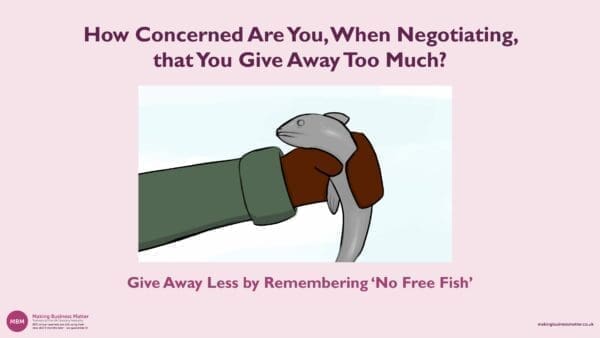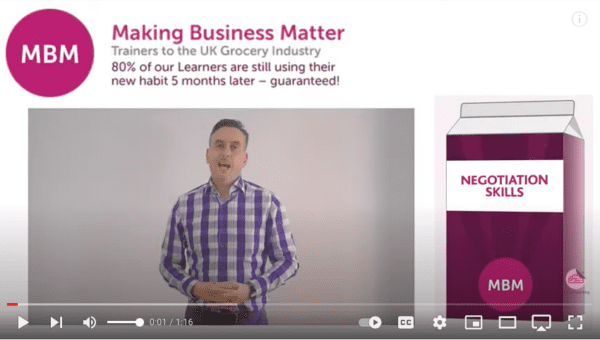This Negotiation Tool is the Most Taught Tool in the World. ‘If You Then I’ – Let’s Find Out Why…
Amateur negotiators were finding that they were blurting out the idea of a proposal, without prior thought and then finding themselves in a place they didn’t want to be – given away too much and receiving nothing back. This is where the If you then I negotiation tool comes to the rescue.
Like so many tools that become part of our natural behaviour, they are so simple, they are almost dismissed. This is similar. Simple, yet effective.
Buying a Second-Hand Car
You read an advert in the paper and arrange to go and see the car dealer. Looking over the Renault Clio you find yourself discussing mpg, previous owners, and alike whilst you try to think of a way to get a better deal. Knowing that you can always walk away and buy a different car, but you like this one and also you’d like a warranty because it’s for your daughter. At this point, most people ‘bottle it’ and make a half attempt at negotiating by haggling (This is not negotiating).
‘I’ll give you £4,250 <The price was £5,000>. That’s all I’ve got. Oh, and a warranty might be good too’.
The car dealer, having done this daily for 35 years explains that it’s a good price, had a few owners, and basically reiterates all the facts once more. You buckle a bit, make one more attempt, and you agree at £4,700, congratulating yourself for getting £300 off. A hero!
You know you should have got a bit more, but you tell yourself that at least you got £300.

There is Another Way
‘If you can throw in a tank of fuel, 4 new tyres, a warranty, and a free service next time, then I am prepared to pay £4,750 in cash’.
By using this tool you are constructing a proposal which has 5 advantages. See below. In the world of negotiating this tool is known as a conditional offer. It means that I am asking for x, and you will get y. Protecting you from giving away free fish.

If You Then I Tool 5 Advantages
The if you…then I… tool has in-built advantages:
- It encourages us to construct a sentence that means the part they want is second, so they have to listen to the first part in order to hear the second part – The part they want.
- If you then I encourages us to consider two parts of the deal; what you want and what they want.
- By using the sentence in the way it is constructed, if you then I, means that you have carefully thought through a proposal.
- Seeks to achieve win:win. A reciprocal deal. A foundation where future businesses could thrive.
- You are protected from giving away something and getting nothing in return.
Sticky Learning ® is 7 times more effective than 1-day training courses. Plus, you will get a Chain of Evidence proving your Return on Investment. Discover soft skills training that changes behaviours long term.

The Dark Side of Negotiating
Negotiators that manipulate watch for amateur negotiators who use the tool the wrong way around. For example:
‘I am prepared to pay £4,750 in cash…’.
The other party cuts you off at your prime, sticks out his hand, shakes yours and thanks you for the deal. You said his part first, he heard it, grabbed it and potentially the deal is one. Never ‘If I…’, always, ‘If you…’.
One-Minute Video
This short video shares a little more about the tool:

Action: For even more useful content on negotiations, check out our ultimate guide on negotiation skills.




